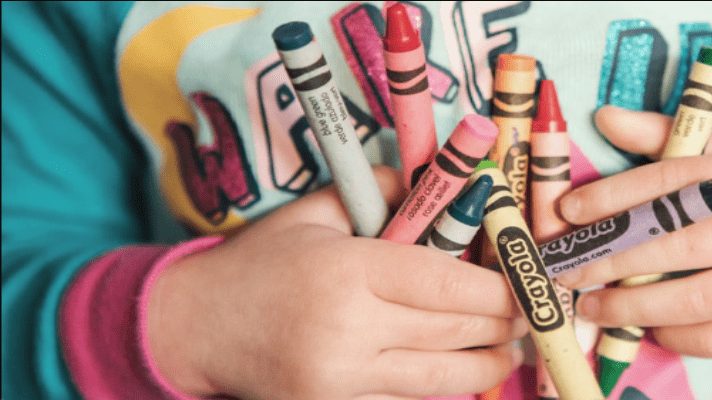Keeping kids occupied can be a challenge, especially if you don’t want video games and TV to take up too much of their time. If you want activities that can be both entertaining and educational, consider hosting a family craft night with a focus on eco-friendly materials. Not only does this allow kids to have fun and get creative but it can teach them important values about environmental conservation.
Eco-Friendly Craft Ideas
Starting an eco-friendly craft night is something that the whole family can benefit from. By sitting down to create re-usable crafts you can help make your home more sustainable, while also giving your kids fun activities to participate in. To help you get started with ideas here are some popular eco-crafts to consider:
- Unpaper Towels: Unpaper towels help reduce the amount of waste you produce while also giving you neat towels to wipe up spills with. For this craft, you’ll need a layer of cloth diaper fabric and a layer of flannel. Many fabric stores will have yards of these materials for surprisingly cheap prices. Take the kids and let them pick out their favorite prints so that they can help design their own special towels. The fun patterns may even entice your kids to pitch in with cleaning every once in a while!
- Hanging Vases: If you have a new baby then you know how fast baby food jars can pile up. While these can be recycled, they can also be used to create tiny hanging vases. If you have older kids this craft will still work with mason jars or any type of glass jar that you can clean up and paint. Consider how many glass condiment jars you get pasta sauce, gravy, pickles, and olives in at the store, any of these will work perfectly.
- Reusing Water Bottles: If you have plastic water bottles lying around, there are a lot of fun crafts you can do with them. From DIY vertical onion towers to bottle bottom jewelry holders, there really are limitless ideas when it comes to creative crafts and plastic bottles. They can even be turned into fun holiday ornaments, just cut off the bottoms and paint them like snowflakes.
- Rock Painting: It’s no secret that kids love getting their hands dirty and rock painting allows them to do just that. Spend a few minutes collecting decent sized rocks around your property and let your kids go to town with painting their own colorful creations. Even younger kids can have fun doing this, plus it can help them work on their motor skills. You can even go a step further and add your painted rocks to a lovely DIY fairy garden house!
- Homemade Piggy Banks: Have a large plastic bottle laying around that’s destined for the recycling bin? Consider turning it into your child’s very own piggy bank.
Crafts like this are something to keep in mind when trying to come up with ideas for your very own family craft night. If you need further inspiration all you have to do is take a look online for hundreds of projects that are fun for all ages.
Teaching Environmental Values
Environmental values can be learned early at home. For instance, energy use has been doubling every 20 years in the United States, this can be used to stress the importance of turning off lights that aren’t in use. Additionally, since the average family uses over 300 gallons of water every day you can also instruct your children on the importance of not running sinks for long periods of time or taking long showers. Little things like this can help impress upon children the importance of going green and being conscious of their impact on the environment. Other ways of teaching can include:
- Letting them Help with Recycling: Teaching your children the difference between recyclables and letting them be involved is one of the best ways to teach them in a hands-on way that’s more likely to stick.
- Take Trips Outside: If you have a park or forest preserve near you, consider taking your children out into nature for a day of walking or hiking. This is a great way to introduce them to nature and talk to them about the importance of protecting the world around them.
- Thrifting and Donating: Clothes that make their way into landfills are quickly becoming a huge pollution problem, especially since some synthetic fibers can take over 200 years to start to break down. Consider taking your kids along when you donate your clothes and teach them the importance of donation and buying used when possible.
- Composting: You may also want to consider starting a garden or compost pile outside of your home. This is a fun way to help the environment while also teaching your kids about how the planting and composting works. It can also help teach them responsibility, especially if you put them in charge of the watering or weeding.
Above all, kids will learn environmental values by watching what you do. If they see you taking steps to protect the environment, they will likewise begin to act by example. If you talk about the environment but act inappropriately, you’re going to have a harder time getting the message across.
Going Local
There are over 28 million small businesses in the United States and supporting them is another important lesson to impart to children. Small businesses often have a much lower impact on the environment than large multinational corporations that are often too large to appropriately monitor for pollution or environmental disturbances.
If you have a farmers market near you, consider shopping there when you can and teaching your children the value of supporting local farmers. Not only will the produce be fresher, but you’ll be helping grow your local economy while championing more eco-friendly farming methods.
Going back to the craft theme, you can also look for local craft classes that your family can participate in. Some community centers and libraries host craft activities which are both fun and educational. This is also a helpful way to get more involved with your community and make connections and friends that you can get together with locally.
Setting the Bar
As parents, it’s our job to lead by example. By taking the time to come up with fun eco-friendly crafts and activities we can help teach our kids the importance of reusing and recycling. Additionally, starting these lessons at a young age can help children develop life long green habits that they can continue to live by even when they’re living on their own.
If you’re looking for the best ways to keep your kids occupied, without sitting them in front of a screen, consider setting aside a night for crafting. It’s moments like these that can be the most influential when it comes to learning life lessons and making invaluable memories.



